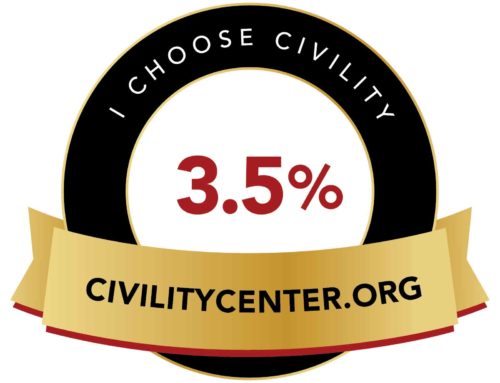By:Patrik Jonsson
The model of peaceful protest that’s largely held since the civil rights era is being challenged, with roiling violence in American cities from Charlottesville, Va., to Portland, Ore. The Grannies, who use humor to defuse tense situations, are among those trying to calm the streets.
August 16, 2017 Portland, Ore.—Amid the hubbub of Portland’s waterfront “Saturday Market,” song suddenly erupts from what looks like a Mayberry sewing circle, their raised fists punctuating the chorus: “It is a time to care, not to kill….”
The singers’ dresses and hats are mismatched, their song a tad out of tune, but they are, Portlanders say, ever so endearing: Twenty-odd older ladies in hats, outsized glasses, and gingham dresses, belting out protest lyrics set to standards – and sometimes set to dance. One has little cherries hanging off her hat, while others don faded “ERA” pins.
One of the most beloved social activist groups in this Pacific Northwest city, they are the Raging Grannies. “Grannying is the least understood and most powerful weapon we have,” says Granny Rose de Shaw. And in a time when peaceful protest is increasingly giving way to fistfights, clubs, and chemical spray, their humorous message may be more important than ever.
The Grannies offer a kind of satirical street theater that challenges authority while charming the public – but lately, they’re having to act as referee between two opposing political extremes, whose violent tactics led Politico to dub Portland “the most politically violent city in America.”
As cities such as Berkeley, Calif., and Seattle have become epicenters of rolling street fights fueled by intense partisanship, the model of peaceful protest that has held since the civil rights era is being challenged – not just by the emboldened neo-Nazis and white supremacists who roiled Charlottesville, Va., over the weekend, but also left-wing anarchists. Here in Portland, both sides’ tactics of physical confrontation have begun to scrape away at the city’s peaceful image.
“We’re struggling with our role,” admits Granny Linda Schmoldt, a retired librarian. “The difference for us now is we’re having to say, amid all this punching and rolling in the streets, ‘You have to stop right now and go to your corners. Be nice to each other.’”
In a new tactic, experts say, the white nationalist movement is targeting progressive cities, calling leftist activists out on their own turf. And for its part, the antifa (short for anti-fascists) movement has embraced violence as a tactic against what it sees as creeping fascism on American streets. The ensuing clashes have rattled residents. In late May, a participant in an alt-right rally stabbed to death two Good Samaritans, and wounded a third, who were coming to the aid of two minority women on the city’s light rail train. The deaths sparked shock and mourning, and then a wave of counter-protests that often have devolved into violence.
The situation has put Portland at the epicenter of what some call a soft civil war of fists and sticks “for control of America’s streets,” as National Review essayist David French writes.
According to University of Michigan political scientist Michael Heaney, only about 3 percent of protest attendees, who tend to be more politically active, say violence is “very” necessary to make a point. (Only 1 percent of the general population makes that claim.)
Notably, he says, that number has not shifted since President Trump’s election, suggesting that Americans are not growing more accepting of political violence in the streets. Indeed, since the 1980s, says Rachel Einwohner, a political scientist at Purdue University, Americans have increasingly come to see nonviolent protests as not only legitimate but necessary for democracy. And so far, most Trump era marches, including the women’s march and Mr. Trump’s campaign-style rallies, have remained peaceful.
Yet the growing frequency of actual street fighting in liberal strongholds like Portland and Berkeley, Calif., says Mr. Heaney, is notable, since the upshot is that America is witnessing a sum total of more political violence, including deadly serious incidents such as the weekend of violence in Charlottesville, Va., that left three dead and several dozen injured, and the targeting of Republican congressmen at a baseball practice this year. The nature of the violence, too, he says, is different.
“This is really ideological and partisan violence … [not] violence in response to very concrete issues,” says Heaney, the co-author, with Fabio Rojas, of “Party in the Street: The Antiwar Movement and the Democratic Party after 9/11.” “People are clashing now because they see the world in a different way ideologically – and they detest the beliefs that the others have about the world. We have two camps in our society that are not communicating civilly any more. This violence … is one manifestation of that decline in civility.”
Turning down the temperature
Progressive organizers say they are seeing several shifts in response to the stubborn street battles, as people try to turn the emotional temperature down. The Grannies may be the most colorful – if not the most quirky.
The blue-vested Portland Peace Team has seen applications skyrocket since the MAX train stabbings. Progressives in Berkeley have utilized a tactic of empathy tents at rallies, offering 10 minutes of nonjudgmental listening to help ease tensions. Organizers in Portland are being trained as “vibe-watchers” to look out for brewing trouble.
Native American groups, too, have urged peace to bring antifa and the self-described alt-right back from the brink of battle.
Part of the message is getting through. One antifa group, Rose City Antifa, said they would stay away from a July protest, choosing instead to do a fundraiser.
At the same time, mainstream organizers are struggling to persuade the antifa flank that violent tactics are counterproductive. Instead, antifa, who often hide their faces to avoid legal repercussions, have accused the Portland Peace Team of trying to unmask them.
For her part, Granny Denise Busch, she of the cherry hat, says she has been treated warmly by antifa protesters. In turn, she has engaged some of the hooded anarchists with pleas to not fight, some of which, she said, seems to have worked.
“We become idealized grannies to them, and they don’t want to disappoint us,” she says.
Or, as Portland resident Tom Hastings says, “It’s very, very hard to go making nasty, rotten claims about a granny.”
Long-time civil rights protesters, like the Grannies, say they are dismayed by the left fringe’s embrace of violence. While punching Nazis may be a popular internet meme, they argue, the answer to hatred cannot be more hate, and peace movements shouldn’t be in the business of hurting people.
“Movement leaders sort of agree to what is known as a diversity of tactics, but my question now is: Do you want diversity of tactics or do you want diversity of people?” says Mr. Hastings, a Portland State University professor and a veteran of Portland’s so-called nonviolent army. “If there’s a violent flank in a movement, your recruitment numbers go down, which correlates with a much lower chance of succeeding with your announced goal.
“Therefore, God bless the Grannies.”
Rocking chair rallies
The Raging Grannies were founded in Victoria, British Columbia, in 1987. A satirical temperance-style union, they cite “a history of trouble-raising when not listened to,” as Ms. de Shaw wrote on the group’s web page. “Even in our times, we grannies have raised a few mountains, caused a few floods.”
Requirements to be a Granny are: being at least 55, and a “willingness to make noise” tempered by “an open heart to learn something new.” “No singing ability” and “no color sense, obviously,” are required, writes de Shaw.
Since Trump’s election, the Portland Raging Grannies’ ranks have almost doubled, to 55. Their oldest member is well into her 80s. They employ a strategy exemplified by the Otpor (“resistance”) movement in Serbia, which helped undermine political and law enforcement support for strongman Slobodan Milosevic through humor, satire, and street theater.
They are also not beyond civil disobedience. Grannies have been arrested during events held by the North Carolina protest movement known as “Moral Mondays.” And a hero of the national group tied her rocking chair to a train track to protest a planned oil rig. She calmly knitted a sweater until police arrested her.
In 5-1/2 years of existence, the Portland Grannies have fine-tuned similar tactics, sometimes to great effect.
“They went to a military recruiting center, a place where I’d been doing candlelight vigils for a year, and they were very gung-ho,” says Hastings, the veteran anti-war organizer. “They put a whole bunch of rocking chairs in front of this recruitment center – a rocking chair blockade. When police came, they warned the Grannies. The Grannies took off but left their chairs, so the police had to load up the chairs. The picture in the paper: Police arrest grandma’s rocking chair.”
The Grannies “show people what it means to be an activist, and in that way it highlights something else that social movements do: They sort of provide therapy for disaffected people,” adds Purdue’s Ms. Einwohner, who studies the dynamics of protest and resistance.
Portland’s protest history
Portland has a long history of protest – 40,000 protested the decision by President George W. Bush to invade Iraq in 2003; a decade earlier, President George H.W. Bush’s Secret Service nicknamed the city “Little Beirut” for its raucous anti-war protests.
“What’s happening in Portland is really just the latest chapter of an old story – sort of the frontier spirit where the margins are celebrated and where to be a registered Democrat is something of a stodgy, boring position to take,” says Randy Blazak, who studies hate movements at Portland State University. “There are probably more anarchists out admitting their political position than dyed-in-the-wool traditional Democrats. May Day is the biggest holiday in the city, much bigger than Christmas.”
The roots of the current conflict can be found in the skinhead wars of the 1980s and ’90s, when punks-turned-antifascist rumblers took on similarly attired neo-Nazi skinheads after the 1988 beating death of an Ethiopian college student by white supremacists. Then as now, antifa would look for tattoos or jewelry that suggested Nazi sympathies – and then attack – verbally or physically.
Alexander Reid Ross, author of “Against the Fascist Creep,” told Portland’s Willamette Weekly earlier this year that antifa – in his view, rightly – understands that “the alt-right has to be understood as a fascist movement.”
Their opponents include rally organizer Joey Gibson, who advocates for free speech rights for conservatives. While Mr. Gibson says he does not welcome white supremacists, some regular attendees admit that part of their mission is to defend themselves – and their cause – by “kicking some antifa [butt],” as Tiny Toese, a self-styled Samoan patriot who was arrested after a brawl in July, told followers on social media.
The stated aim of that Sunday’s “Patriot Prayer” rally was to accuse antifa of domestic terrorism by using tactics to hurt conservatives, including calling their bosses to inform them of their political activities. The focus on leftist agitators is part of a deeper political shift, as well. Under Attorney General Jeff Sessions, the Department of Justice has disbanded a unit on right-wing extremism and is now monitoring Portland and other cities for evidence of “domestic terrorism” from the left.
“We’re seeing kind of the children of [the skinhead wars],” says veteran Portland organizer Jamie Partridge. “The Proud Boys are the street fighters who aren’t really that ideological, but they are mad as hell. They see in Donald Trump a beacon of hope for bringing back the America that they think once was, but that they’ve never known.”
‘Don’t hurt people to be peaceful’
There are growing concerns among organizers like Mr. Partridge that the self-described alt-right, despite its embrace of white nationalism and white supremacy, is having success in recruiting as a result of the attacks from antifa. The addition of Oath Keepers, a national group of retired law enforcement, as volunteer security has helped give the “Patriot Prayer” movement legitimacy in broader conservative circles.
“The thing about the left, we tend to be Chicken Littles: ‘Oh, this is Hitlerian,’” says Hastings. “We tend to default straight to the bottom of the slippery slope, so our credibility has been radically compromised. Yes, there are spooky parallels between what Trump is doing and what Hitler did. But antifa can’t operate with violence and expect it to produce anything other than a [backlash] in the general population.”
It also is having an impact on rally attendance. On that Sunday, noticeably fewer activists on both sides showed up for dueling rallies before the fighting began, only to quickly dissipate.
Fredric Alan Maxwell, a Portland writer and activist, stayed home from that event with his cat. At an earlier melee, he was left slumped and scratched up after a group of antifa swept past him. Afterward, he wrote that his attackers were “hiding their faces under bandannas as though robbing not speech but a stage….”
Such decisions by longtime peace activists to stay home, as much as the fighting itself, is driving the transformation of protest in the Trump era, including for the Raging Grannies.
In response, the Grannies have adjusted their clothing policy, replacing at times their traditional dresses and hats for black T-shirts for mourning and white T-shirts with sashes for observing rallies – and engaging with edgy young protesters.
“Our message right now is: Don’t hurt people to be peaceful,” says Granny Diana Richardson. “Instead, rally the troops by naming what is wrong. We have to realize we’re part of a huge community, which is the whole world




Leave A Comment